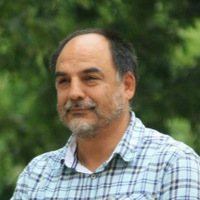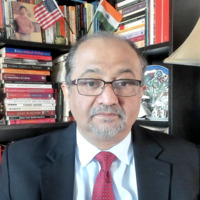
Josua Gräbener
2024 - 2025 : Contractuel Enseignant (Lecturer) in political science, University of Lille
2023 - 2024 : Postdoc researcher, Pandorix Project, UC Louvain. https://www.pandorix.be/
2022 - 2023 : I was in charge of the illiteracy observatory in Wallonia. I conducted several research projects to identify different types of non take up of basic education among adults and provide policy proposals.
2016 - 2022 : Lecturer in several universities and institutes of Lyon, Grenoble, Lille, Strasbourg and Paris. Besides, involved in many adult education programmes; first as a volunteer (2011 - 2015) and then as a part time employee in two NGO (2018 - 2022).
2014 - 2016 : Assistant Lecturer, Sciences Po Grenoble.
2011 - 2014 : Awarded a PhD full scholarship, Rhône-Alpes regional Council.
In 2017, I defended a PhD dissertation on the politics of adult education, focusing on industrial relations actors in charge of collecting and distributing training taxes in France and Italy. The main research question was to understand why, how & when public policies aimed at inclusion (particularly the European Social Fund) were filtered by employers specific agendas. This phenomena appears to be much stronger in Italy, where the institutional setting provides more structural power for employers ("contributivité").
Supervisors: Sabine Saurugger
Address: Anderlecht
2023 - 2024 : Postdoc researcher, Pandorix Project, UC Louvain. https://www.pandorix.be/
2022 - 2023 : I was in charge of the illiteracy observatory in Wallonia. I conducted several research projects to identify different types of non take up of basic education among adults and provide policy proposals.
2016 - 2022 : Lecturer in several universities and institutes of Lyon, Grenoble, Lille, Strasbourg and Paris. Besides, involved in many adult education programmes; first as a volunteer (2011 - 2015) and then as a part time employee in two NGO (2018 - 2022).
2014 - 2016 : Assistant Lecturer, Sciences Po Grenoble.
2011 - 2014 : Awarded a PhD full scholarship, Rhône-Alpes regional Council.
In 2017, I defended a PhD dissertation on the politics of adult education, focusing on industrial relations actors in charge of collecting and distributing training taxes in France and Italy. The main research question was to understand why, how & when public policies aimed at inclusion (particularly the European Social Fund) were filtered by employers specific agendas. This phenomena appears to be much stronger in Italy, where the institutional setting provides more structural power for employers ("contributivité").
Supervisors: Sabine Saurugger
Address: Anderlecht
less
Related Authors
Suayyip Calis
Sakarya University
Muqtedar Khan
University of Delaware
C. Michael Hall
University of Canterbury/Te Whare Wānanga o Waitaha
Matthew J Weait
University of Oxford
Marlene R E N A T E Atleo
University of Manitoba
Adam Gaudry
University of Alberta
George K. # Zarifis
Aristotle University of Thessaloniki
Andreas Umland
National University of "Kyiv-Mohyla Academy"
Geoffrey Skoll
SUNY: Buffalo State College
Marco Hauptmeier
Cardiff University
InterestsView All (432)










Uploads
Papers by Josua Gräbener
per la formazione in investimento nel “capitale umano”. L’articolo valuta a seguire le potenzialità del “conto personale di attività” e le principali sfide ancora aperte.
From company to salary transferability? The uncertain future of training contributions on the eve of a new reform (Article in French) – Summary. Why are training taxes so concentrated on productivist objectives (growth, profit, etc.), while public policies officially encourage ecological transitions? Building on the case of french bilateral training institutions (“OPCA”), the paper explores some major institutional trends transforming socialized wage for adult education into investments in
“human capital”. It assesses the opportunities offered by the new “activity personnal account” and salient challenges to address.
Cet article propose une interprétation des différences de gouvernance des systèmes paritaires des cotisations sociales pour la formation professionnelle continue (FPC), en France et en Italie. Les rapports de force politiques et institutionnels se répercutent sur le statut des cotisations. Ces dernières font l'objet d'une pression contributive au profit des employeurs, se traduisant notamment par une volonté de retour sur investissement, pression d'autant plus grande lorsqu'elles sont collectées par des organismes concurrents.
En France et en Italie, les politiques d'emploi s'appuient en grande partie sur les branches professionnelles pour atteindre leurs objectifs. Il en va notamment ainsi pour la formation continue, à travers les Organismes Paritaires Collecteurs Agréés en France et les Fondi Paritetici Interprofessionnali en Italie (OPCA et FPI). Mutualisateurs de cotisations sociales, leurs importantes capacités administratives et financières en font des partenaires contractuels privilégiés pour des acteurs publics désireux d’optimiser quantitativement et qualitativement la consommation des crédits communautaires, en particulier du Fonds Social Européen. La décentralisation de l’usage de ces derniers est valorisée politiquement et mobilisée pour nourrir des agendas néo régionalistes différenciés ; néanmoins, elle est en pratique difficile à achever. Cela s’explique notamment par l'inégale capacité et volonté des organisations syndicales et patronales à investir ces nouveaux espaces d'action publique. Ces organisations peuvent alors être à la fois des “relais” ou des “freins” aux stratégies de régionalisation : l’objet de cette communication est d’en identifier les conditions et les modalités. Au terme d’une enquête doctorale menée en Rhône Alpes et en Lombardie, une variable explicative majeure se dégage clairement : le degré de pression contributive des adhérents qui s’exerce sur les acteurs paritaires.
Trade unions and business associations differentiated reactions towards regionalization
In France and in Italy, employment policies largely depend on trade unions and business associations’ cooperation to reach their objectives. It is particularly the case for adult training: the French OPCA (Organismes Paritaires Collecteurs Agréés) and the Italian FPI (Fondi Paritetici Inteprofessionnali) are very important actors. They collect employers’ training taxes and have important financial and administrative capacities, which public actors are willing to rely on. OPCA and FPI are particularly useful for using ESF (European Social Fund). Its usage decentralization is politically promoted and serves regionalist agendas. However trade unions and business associations might be unable to follow this political trend; moreover, they might be reluctant to do so. This paper seeks to identify the conditions for the transformation of industrial relations along decentralization dynamics; and more widely to explain the differentiated reactions to the political usages of EU funding. It is based on a PhD investigation made in Rhône Alpes and Lombardy. A major factor is identified: the degree of membership pressure faced by business associations, which in turn give different status to the employers’ training taxes: more or less socialized; more or less detached from labour market; qualifying or merely certifying the workforce.
per la formazione in investimento nel “capitale umano”. L’articolo valuta a seguire le potenzialità del “conto personale di attività” e le principali sfide ancora aperte.
From company to salary transferability? The uncertain future of training contributions on the eve of a new reform (Article in French) – Summary. Why are training taxes so concentrated on productivist objectives (growth, profit, etc.), while public policies officially encourage ecological transitions? Building on the case of french bilateral training institutions (“OPCA”), the paper explores some major institutional trends transforming socialized wage for adult education into investments in
“human capital”. It assesses the opportunities offered by the new “activity personnal account” and salient challenges to address.
Cet article propose une interprétation des différences de gouvernance des systèmes paritaires des cotisations sociales pour la formation professionnelle continue (FPC), en France et en Italie. Les rapports de force politiques et institutionnels se répercutent sur le statut des cotisations. Ces dernières font l'objet d'une pression contributive au profit des employeurs, se traduisant notamment par une volonté de retour sur investissement, pression d'autant plus grande lorsqu'elles sont collectées par des organismes concurrents.
En France et en Italie, les politiques d'emploi s'appuient en grande partie sur les branches professionnelles pour atteindre leurs objectifs. Il en va notamment ainsi pour la formation continue, à travers les Organismes Paritaires Collecteurs Agréés en France et les Fondi Paritetici Interprofessionnali en Italie (OPCA et FPI). Mutualisateurs de cotisations sociales, leurs importantes capacités administratives et financières en font des partenaires contractuels privilégiés pour des acteurs publics désireux d’optimiser quantitativement et qualitativement la consommation des crédits communautaires, en particulier du Fonds Social Européen. La décentralisation de l’usage de ces derniers est valorisée politiquement et mobilisée pour nourrir des agendas néo régionalistes différenciés ; néanmoins, elle est en pratique difficile à achever. Cela s’explique notamment par l'inégale capacité et volonté des organisations syndicales et patronales à investir ces nouveaux espaces d'action publique. Ces organisations peuvent alors être à la fois des “relais” ou des “freins” aux stratégies de régionalisation : l’objet de cette communication est d’en identifier les conditions et les modalités. Au terme d’une enquête doctorale menée en Rhône Alpes et en Lombardie, une variable explicative majeure se dégage clairement : le degré de pression contributive des adhérents qui s’exerce sur les acteurs paritaires.
Trade unions and business associations differentiated reactions towards regionalization
In France and in Italy, employment policies largely depend on trade unions and business associations’ cooperation to reach their objectives. It is particularly the case for adult training: the French OPCA (Organismes Paritaires Collecteurs Agréés) and the Italian FPI (Fondi Paritetici Inteprofessionnali) are very important actors. They collect employers’ training taxes and have important financial and administrative capacities, which public actors are willing to rely on. OPCA and FPI are particularly useful for using ESF (European Social Fund). Its usage decentralization is politically promoted and serves regionalist agendas. However trade unions and business associations might be unable to follow this political trend; moreover, they might be reluctant to do so. This paper seeks to identify the conditions for the transformation of industrial relations along decentralization dynamics; and more widely to explain the differentiated reactions to the political usages of EU funding. It is based on a PhD investigation made in Rhône Alpes and Lombardy. A major factor is identified: the degree of membership pressure faced by business associations, which in turn give different status to the employers’ training taxes: more or less socialized; more or less detached from labour market; qualifying or merely certifying the workforce.